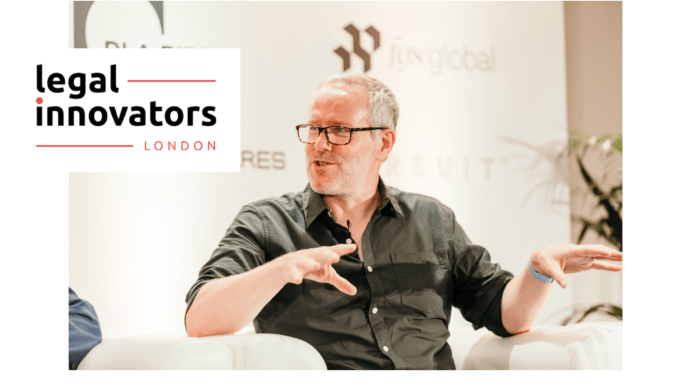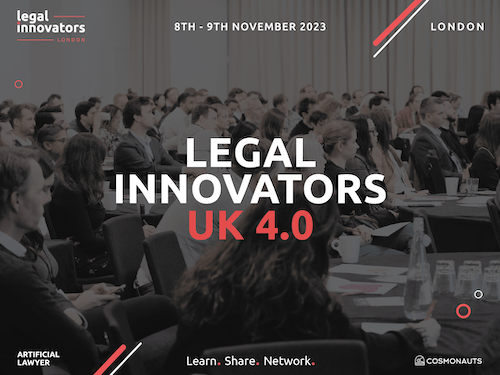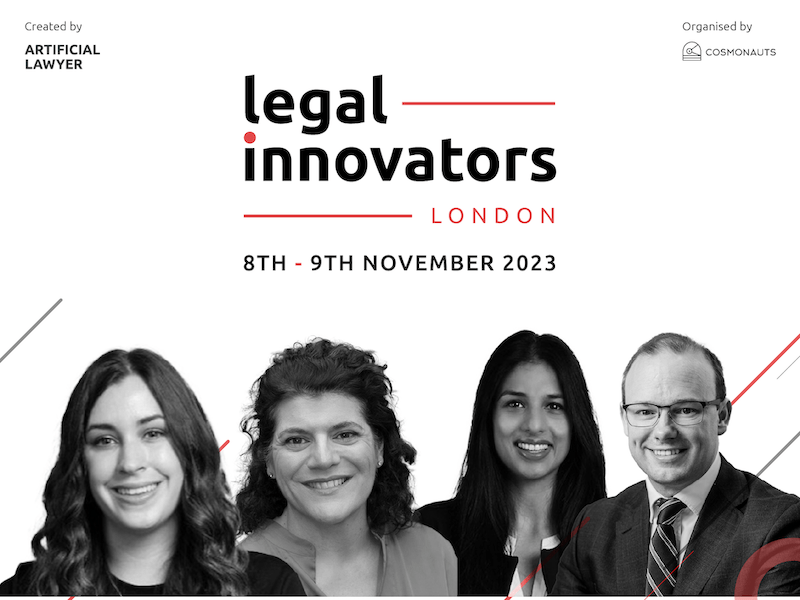
To celebrate the arrival of the Legal Innovators UK conference in London on November 8 + 9, we are profiling some of our fantastic speakers. This week it’s Robin Fisher, General Counsel for EMEA at Randstad, the global talent company.
—
What is your role and how did you get into this field?
I am the General Counsel for EMEA for Randstad Enterprise. We provide HR outsourcing services to a wide range of global clients. I studied Law with French Law at university and wanted to go straight into work. I found a role as a Legal Assistant at Adecco where I went on to study the LPC part-time and complete my training contract in-house. I hit a bit of a plateau at Adecco and moved to Randstad where I’ve done a variety of roles including Legal Director for Randstad UK before my current role in Enterprise.
How much has your role changed in the last five years, and how much do you think it will change in the next five years?
The core of the role has always been about problem solving. In the last five years that hasn’t changed but the problems have become more complex. Randstad Enterprise works in the HR space and changes in working patterns since COVID are reflected in the issues that land on my desk. Dealing with cross-border and remote work in an industry that is quite heavily regulated in Europe is challenging. We have moved to much more of an online culture in the last three years – immediate availability of colleagues is both a benefit and a curse.
Do you think that we have reached a ’new era’ for legal innovation, with forces such as generative AI, standardisation and rethinking legal work catalysing real change?
I think the cultural significance of new tools does play a role in adoption. ChatGPT brought AI to the masses. I worry that we can be very inward looking as a profession and I’d like to see more time spent understanding the real problems clients have. The example I always quote is the assumption that sales people come to legal because they want a contract reviewed. No, they come to legal because they want the contract signed. Deeply understanding what our clients want is the first step before innovating in delivery.

From an inhouse perspective, do you feel the balance of power is shifting more to the clients now as inhouse legal teams grow in size?
Inhouse teams need to establish where they add most value and use external support to fill the gaps. I don’t think it’s a power balance – in any relationship, both parties need to feel like they are getting something out of it. Working inhouse is much more accepted now than it was when I trained. Back then, you’d go to a law firm if you needed “real work” doing. I look now at some of the lawyers inhouse and they are hugely capable of doing a lot of the work themselves so law firms need to adapt the value proposition.
How much has improving KM and data analytics inside the business helped your legal team?
Having good data is table stakes. The difficulty for lawyers has been that HR has the HR system, finance has the finance system etc. There is no “legal system” for legal to get their data from. But once you have that data (we use the LMSS from SALI to classify work in a standard helpdesk tool), you can start to tell real stories and we know from centuries of experience that stories help change happen.
Do you have a view on the billable hour, and if so, what would you like to see happen?
It’s a question of incentive. If I reward my team on the number of hours they bill per year, the go-to-market model will always revolve around that metric. So, it doesn’t matter if it’s fixed price or capped; at the root of the price will be an estimation of how many hours can be billed.
And finally, if you had one message you’d like to share about how to achieve successful change management in relation to legal innovation, what would it be?
Legal does not operate in a vacuum. Whatever changes are made have to work in the context of the wider business and it’s vital to understand how the business works. For example, when looking at our contract intake and allocation process, we work closely with the sales operations team to ensure the process works for everyone.
Thanks Robin, great insights!
—
Legal Innovators UK Conference – November 8 + 9 – London
The Legal Innovators UK conference will take place on 8 + 9 November, and we have a fantastic group of speakers from across the legal innovation ecosystem for you! Day One: law firms and ALSPs, Day Two: inhouse and legal ops.

The two-day event comes at a time of significant change for the legal market and we will be bringing you engaging panels and presentations where leading experts really dig into the issues of the day, from generative AI, to the evolution of ALSPs, to law firm innovation teams in this new era for legal tech, to how empowered legal ops groups and pioneering GCs are making a real impact.
For tickets, please see here.
For more information, please see here.
See you there!
Richard Tromans, Founder of Artificial Lawyer and Conference Chair.